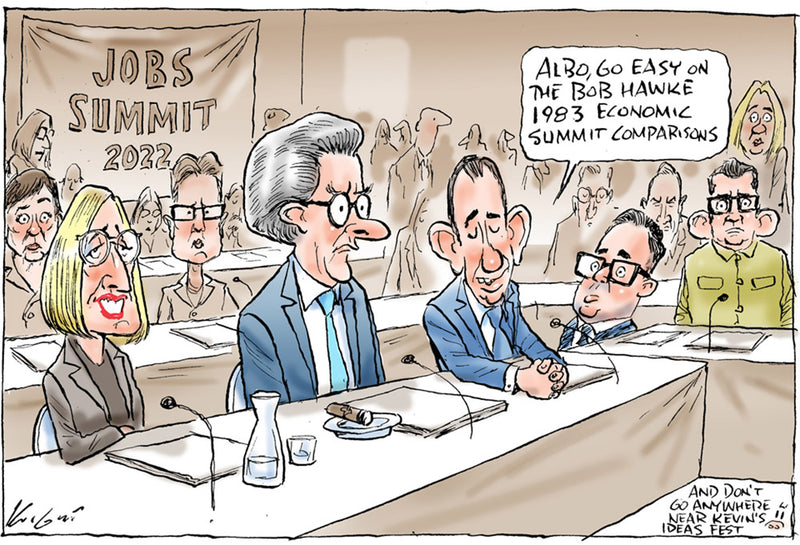Australian Election: Albanese's Economic Opportunity

Table of Contents
Addressing the Cost of Living Crisis
The soaring cost of living is a significant concern for many Australians. Albanese's economic opportunity hinges on effectively addressing this crisis. Key areas of focus include inflation, wages, housing affordability, and energy prices.
-
Tackling Inflation: Labor's plans include targeted measures to reduce inflation, focusing on supply-side pressures and responsible wage growth. This involves collaborating with the Reserve Bank of Australia to maintain price stability while supporting economic growth.
-
Boosting Wages: The government aims to increase wages through various strategies, including strengthening the Fair Work Commission and promoting fair pay agreements. The impact of wage increases on inflation will require careful monitoring and management.
-
Improving Housing Affordability: Addressing housing affordability is crucial. Labor's initiatives include increasing social and affordable housing, investing in infrastructure to support housing construction, and exploring options to regulate the property market. Specific policies include the expansion of the National Housing Accord.
-
Reducing Energy Prices: Labor aims to lower energy prices through investments in renewable energy sources, aiming for a more sustainable and affordable energy future. This includes initiatives to improve energy efficiency and reduce reliance on fossil fuels.
-
Specific Policy Initiatives:
- Increased funding for social housing programs.
- Improved access to affordable childcare.
- Measures to reduce the cost of essential medications.
Investing in Infrastructure and Jobs
Albanese's economic opportunity emphasizes significant investment in infrastructure projects to stimulate economic growth and create jobs. This is a core component of his plan to build a stronger and more resilient Australian economy.
-
Infrastructure Projects: Labor's plans include substantial investment in roads, railways, public transport, and broadband infrastructure across the nation. These projects are expected to generate substantial economic activity and employment opportunities.
-
Job Creation: The infrastructure investment is intended to directly create numerous jobs in construction, engineering, and related industries. Furthermore, it will stimulate indirect job creation in supporting sectors.
-
Renewable Energy Investment: Significant investment in renewable energy projects will lead to job growth in the clean energy sector and contribute to a more sustainable economy. This supports Australia’s commitment to reducing carbon emissions.
-
Skills Training and Workforce Development: The government plans to invest in skills training and workforce development to equip Australians with the necessary skills for the jobs of the future. This will ensure a skilled workforce capable of supporting the infrastructure projects and broader economic growth.
-
Specific Infrastructure Projects:
- Upgrades to the national rail network.
- Investment in renewable energy projects across the country.
- Expansion of broadband infrastructure in regional areas.
Fiscal Policy and Budget Management
Sound fiscal policy is essential to achieving sustainable economic growth. Albanese's approach focuses on responsible budget management and strategic government spending.
-
Budget Management: Labor’s commitment to responsible budget management involves carefully balancing government spending with revenue generation. This will be critical in managing the national debt and ensuring long-term economic stability.
-
Tax Reform: While specific tax reform details may evolve, Labor's general approach involves ensuring a fair and equitable tax system, potentially focusing on measures to address inequality and encourage investment.
-
Government Spending Priorities: Spending priorities will focus on key areas such as infrastructure, healthcare, education, and social security, aligning with the overall economic goals of growth, job creation and improved living standards.
-
Potential Risks and Opportunities: The success of Labor's fiscal policies will depend on their ability to manage economic risks, such as inflation and global economic uncertainty, while capitalizing on opportunities for growth and investment.
-
Key Budget Highlights:
- Increased investment in education and healthcare.
- Commitment to responsible debt management.
- Focus on supporting small and medium-sized enterprises.
Challenges and Uncertainties Facing Albanese's Economic Plan
Albanese’s economic opportunity faces several significant challenges and uncertainties, both domestically and internationally.
-
Global Economic Uncertainty: Global economic headwinds, including inflation, supply chain disruptions, and geopolitical instability, pose significant risks to Australia’s economy. These external factors can impact domestic growth and employment.
-
Climate Change: The transition to a low-carbon economy presents both challenges and opportunities. Managing the economic transition while minimizing disruption will be crucial.
-
Supply Chain Disruptions: Ongoing global supply chain disruptions continue to impact Australian businesses and consumers. Addressing these issues requires strategic planning and collaboration with international partners.
-
Geopolitical Risks: Geopolitical instability and international trade tensions present significant challenges and uncertainties for the Australian economy. Maintaining strong international relationships will be crucial.
-
Potential Challenges and Risks:
- Rising interest rates.
- Potential for further inflation.
- Unexpected global economic shocks.
Conclusion
Anthony Albanese's economic opportunity presents a significant challenge and potential for positive change in Australia. His plans to address the cost of living crisis, invest in infrastructure and jobs, and manage the budget responsibly will be crucial to his success. While global uncertainties remain, a well-executed strategy can lead to sustainable economic growth and improved living standards for Australians. The effectiveness of these policies will depend on their implementation and adaptability to unforeseen circumstances.
Call to Action: Stay informed about the evolving Australian economic landscape and Albanese's progress in delivering on his promises regarding Albanese's economic opportunity. Further research into specific policy areas will provide a deeper understanding of the potential impact on your own financial wellbeing.

Featured Posts
-
 The China Market A Critical Analysis Of Current Challenges For International Car Brands
May 06, 2025
The China Market A Critical Analysis Of Current Challenges For International Car Brands
May 06, 2025 -
 Tracee Ellis Ross Age Is Just A Number In Dating
May 06, 2025
Tracee Ellis Ross Age Is Just A Number In Dating
May 06, 2025 -
 Tracee Ellis Ross Dazzles In Electric Yellow Marni Dress At Fall 2025 Show
May 06, 2025
Tracee Ellis Ross Dazzles In Electric Yellow Marni Dress At Fall 2025 Show
May 06, 2025 -
 Hasil Imbang Timnas U20 Indonesia Vs Yaman Garuda Nusantara Amankan Posisi 3
May 06, 2025
Hasil Imbang Timnas U20 Indonesia Vs Yaman Garuda Nusantara Amankan Posisi 3
May 06, 2025 -
 Rihannas Latest Look Stylish And Warm In Santa Monica
May 06, 2025
Rihannas Latest Look Stylish And Warm In Santa Monica
May 06, 2025
